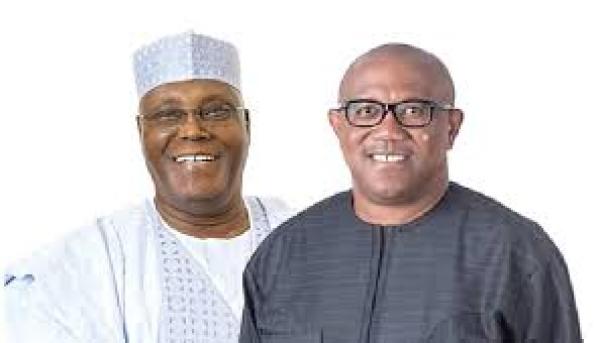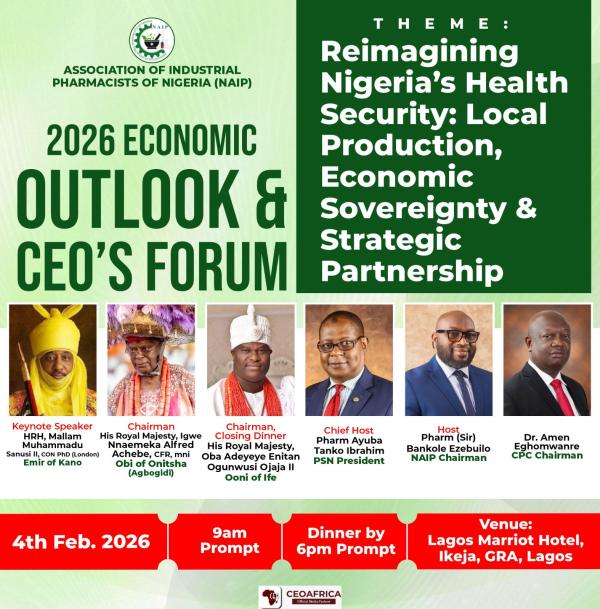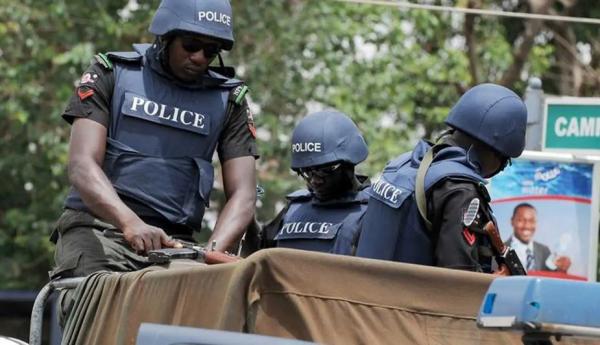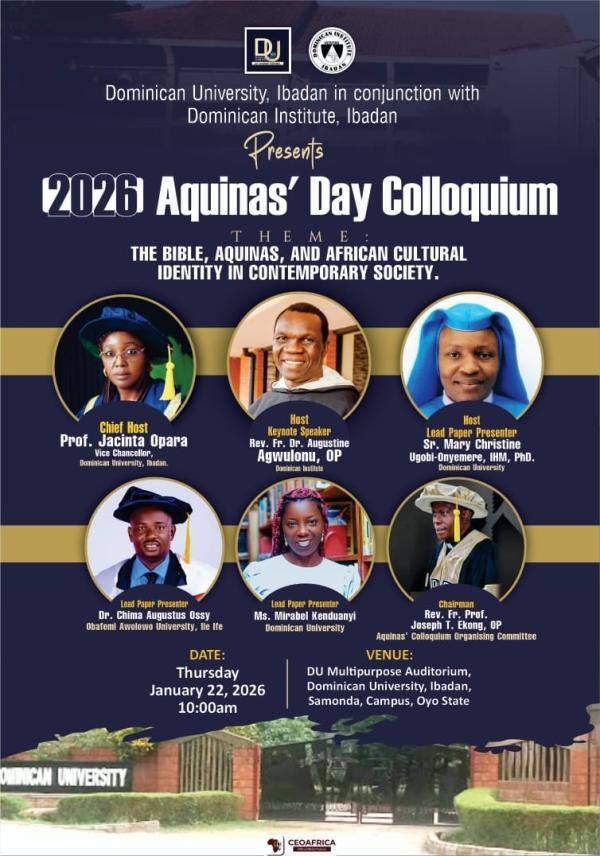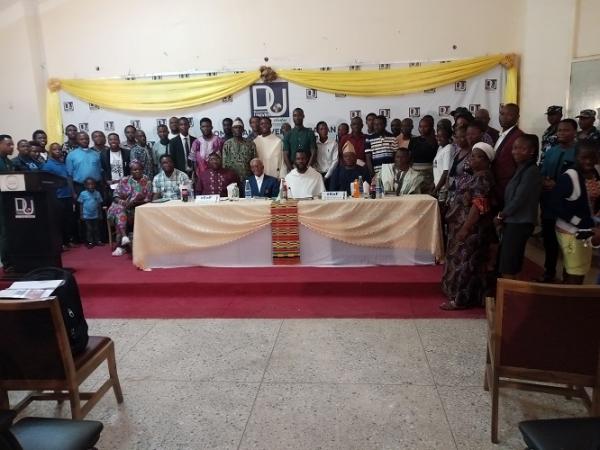
The entire ancient city of Ibadan was on Friday, 23rd September, 2022, lit up by the presence of dignitaries across the country and abroad, as Dominican Community, in conjunction with the Students Christian Movement (SCM), hosted the Economy of Francesco at the Dominican University, Ibadan. The event which started around 10:00 am was also followed virtually by some participants across the globe.
Titled “Promoting Agriculture through Intergenerational Dialogue”, as explained by the host, Rev. Fr Francis Chiadi, OP, “Make it Local”, that is the event, is aimed at bringing in more youths into the sector, by creating fora for idea sharing between the youths, who have the strength and elders, who have the experience. The padre welcomed all the guests and enjoined the participants to be deliberate about implementing the lessons of the event. It is always said that it is not enough to have a car, but warming the engine always keeps the car in good shape. “Knowledge that is not applied is a waste” is the overall message of the priest.
The governor of Oyo state, Engr Seyi Makinde, who declared the meeting open, stated that the “Pace-setter state” is well-poised to be the economic driver and food basket of not only Nigeria, but also the entire West Africa. He was represented by his Executive Assistant, Rev. Dr Idowu Ogedengbe. He explained that the event is timely and necessary for reducing the excessive dependence on importation, which has affected Nigeria’s foreign reserve, as the country’s major source of foreign exchange earnings, crude oil, is no longer reliable.
The founder of United Aid International, who was one of the keynote speakers, emphasized that research and technology can never be undermined in agriculture. According to the Purdue and Arkansas universities-trained don, who said that oil is an efficient material for preserving raw eggs, this finding, on using oil to preserve eggs, was a product of his research at the University of Purdue many years ago and contained in his inaugural lecture; it was born out of his desire to find alternative to electricity, due to incessant power outage in Nigeria. He enjoined all to find out alternatives in all aspects of farming processes.
The don also stressed the need for everyone to be an entrepreneur irrespective of their profession. In his speech, which was centered on the challenges of agricultural entrepreneur and the possible solutions, Prof Ikeme highlighted population growth, deforestation, limited land, climate change as the major challenges facing agricultural practice and put forward sustainable use of natural resources, application of food production technology, post-harvest preservation and packaging as possible solutions to the problems.
Recall that CEOAFRICA had earlier reported that the event was scheduled by the Pope, to hold globally between 22nd and 24th of September, in Assisi, Vatican; while the main conference, seminars and workshops will hold on the 23rd, which some regions may domesticate based on the peculiarity of their settings. The address of Pope was the climax of the event. The holy father explained that it has been his heartbeat to see how to upgrade and sustain the economy of Asisi and the world at large, in respect of the works of Saint Francis many centuries ago. This is also part of the United Nations’ policy—Sustainable Development Goal.
The other keynote speaker, at the domesticated version held in Ibadan, was the Executive Director, Cocoa Research Institute of Nigeria (CRIN), Dr Patrick Adebola. He stressed the need for the elderly generation to adopt the modern Information and Communication Technology (ICT) facilities, while encouraging the youths to embrace farming. He spoke through the Head, Tea and Coffee Research, Dr Rotimi Ipinmoroti.
He went on to highlight previous effort so far made by various governments at different periods; such as: Operation Feed the Nation, Green Revolution among others, but faulted lack of continuity, inconsistency of the policies, lack of take-off capital, failure to develop indigenous technology, lack of processing and value addition, educational policy, youth exit of rural areas due to lack of social amenities as the setback to the development of agriculture in Nigeria. On moving forward and averting these challenges, he suggested consistent government policy, revamping of farm settlement, good storage facility, involvement of more Non-Governmental Organisations (NGOs) in agriculture, adding value to what is produced and continuous training and workshop as possible solutions to the problems.
Rev. Fr Charles Onwuama, OP, also stated, in his speech, that fertilizer is inorganic and cannot be used in all types of land. According to the Dominican Human Resource’ Director, the best form of practice is to explore more organic methods of improving the quality of the soil. Speaking from the soil science perspective, he noted that the best thing to do is to make compost, using by-products like urine, faeces and the likes. These materials, according to him take up to three months to completely decompose.
He also noted that most weeds have some mechanism that sustain them and could be decomposed and used to improve plant yield, while lamenting that Nigerian farming system lacks sustainability due to excessive waste. He noted that things that could be used to improve soil fertility and crop yield are always wasted, because their benefits are not immediately seen; he called for more training and research and enjoined the youth to embrace agriculture and stop tagging it a dirty job.
The Chief Executive Officer and Director, Waste Museum, Dr Jumoke Olowookere also stressed the waste tendency of Nigerian farmers, which is not helpful to farming. Sharing from her experience and what inspired her to establish such a world class project, she stressed that many things inherited from nature were going extinct, which were given to man by God. She noted that “waste” is wealth in disguise.
She charged the youths to show enthusiasm in learning from the wealth of experience of the older generation in order to form a good synergy between the agility of the youth and experience of the elders. While commenting on the waste management level in Nigeria, Dr Olowookere further enjoined the participants on the need to lead a sustainable world without waste by aligning with ‘5Rs and U’ which stands for reduce, reuse, recycle, refuse, repair and upcycle.
Archbishop Gabriel Ojeleke Abegunrin emphasised that for agriculture to thrive there is need for justice. Speaking through Mr Akinmeyin Emmanuel of the Justice Development and Peace Commission, he explained that there are social justice, economic justice, environmental justice and many more. He said that agriculture must be a collective responsibility for sustainability.
Dr Adebayo Kolade, the Executive Director, SCM, thanked the Oyo state government for its efforts in training over 3,000 youths so far in modern agricultural system and further called for the empowerment of those youths. He added that many youths leave agriculture because of insecurity, which government needs to tackle.
He further noted that the neglect of rural areas by the government has a terrific consequence on agriculture. According to him, when basic amenities are not provided in the rural settings youths are forced to seek “better life” in the urban centres. He explained, using experience, that dilapidated state of Nigerian roads have cost farmers a lot.
Ariyo Jonah, of the Dominican Students in Nigeria and Ghana, gave the vote of thanks. The event which had many groups in attendance, was closed with a call on the youth to tap in to the wealth of experience of the elders and go back to the farm.












